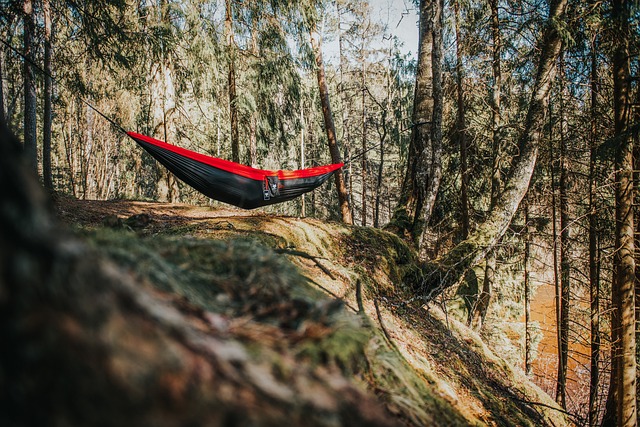If you are feeling apprehensive or stressed, you are not alone. Many of us are perpetually bombarded with information and pressure from work, family obligations, and social media in today’s fast-paced world.
The good news is that it is possible to reduce tension and anxiety without medication or other artificial means.
Exercise is an effective method for naturally reducing tension. The endorphins produced by physical exertion promote feelings of well-being and relaxation. Even a brief stroll around the block can help cleanse the mind and alleviate stress.
In addition, practising mindfulness meditation techniques such as deep breathing and visualisation can aid in stress management. By focusing on the present rather than the past or future, we can train our minds to remain calm even in challenging circumstances.
Incorporating these natural practises into your daily routine can result in less tension and greater tranquillity.
The Advantages Of Physical Activity For Stress Reduction
 Consider yourself to be a boat in turbulent waters. The high waves and the powerful wind make it difficult to remain afloat. Occasionally, tension can feel overwhelming and exhausting.
Consider yourself to be a boat in turbulent waters. The high waves and the powerful wind make it difficult to remain afloat. Occasionally, tension can feel overwhelming and exhausting.
However, just as a boat requires an anchor to remain stable during stormy waters, our bodies require physical activity to ground us during times of stress.
Regularly practising yoga asanas is one method to reduce stress through physical activity. Not only do these postures stretch out tight muscles, but they also promote deep respiration and relaxation. Yoga enables you to concentrate on your respiration and establish a connection with your body, which can be incredibly calming for the mind.
Engaging in outdoor activities, such as hiking or cycling, is an additional method for relieving tension. It has been demonstrated that being surrounded by nature has numerous mental health benefits, including reduced anxiety and enhanced mood. In addition, getting some fresh air and vitamin D from the sun can do miracles for reviving the body and mind.
Regular exercise promotes the release of endorphins, which act as natural analgesics, improve the quality of sleep, bolster self-confidence, and enhance overall health. If you are currently leading a sedentary lifestyle or struggle to find time for exercise due to a hectic schedule, it may initially appear daunting. However, incorporating brief bouts of physical activity into your daily regimen can make a world of difference in the long run!
Mindfulness Meditation Techniques
As stated in the preceding section, exercise is an excellent method for reducing tension and anxiety. But did you know that you can also utilise other natural methods?
Among these methods is mindfulness meditation. By practising mindfulness, you become more aware of your thoughts and emotions, which enables you to manage tension more effectively.
Body scan meditation is one form of mindfulness practise that can be especially beneficial for reducing bodily tension. During this meditation, you concentrate on every part of your body, from your toes to the crown of your cranium. While doing so, attempt to release any tension or discomfort you may be experiencing. This technique promotes relaxation and tranquilly throughout the complete body.
Walking meditation is another form of meditative practise. Walking meditations, unlike traditional seated meditations, entail slow, deliberate movements while focusing on the present. It is an excellent alternative if you find remaining still uncomfortable or if you prefer to move around while meditating. Walking meditation can also increase levels of physical activity, which has been shown to have numerous positive effects on health and well-being.
By incorporating these basic techniques into your daily routine, you will take proactive steps towards naturally reducing stress and anxiety. Therefore, give them a shot – your psyche (and body!) will thank you!
Relaxing Deep Breathing Exercises
Breathing exercises are a straightforward and effective method for reducing stress and anxiety. Focusing on your respiration for just two minutes per day can make all the difference in how you feel. The best aspect is that no special equipment or training is required to get started.
Find a place where you can sit comfortably with your back straight and in peace to commence. Close your eyes and inhale deeply through your nostril, completely filling your lungs. Hold this breath for several seconds before exhaling steadily through the mouth. Repeat this procedure multiple times until you feel relaxed.
Combining aromatherapy with deep breathing can further enhance its tranquil effects. Using essential oils such as lavender, chamomile, and bergamot during deep breathing exercises has been shown to promote relaxation. Add a few drops of oil to a diffuser or tissue and inhale thoroughly while performing deep breathing exercises for a tranquilly boost.
Daily deep breathing exercises for at least two minutes are recommended.
Find a peaceful location where you will not be disturbed.
Utilise aromatherapy with essential oils such as lavender, chamomile, or bergamot for a tranquil effect that is enhanced.
Remember that self-care should always be your main priority. By incorporating these basic yet effective techniques into your daily routine, you will be well on your way to naturally reducing stress and anxiety without the use of medication or other interventions.
Therefore, why not attempt it today? Your psyche and body will appreciate it!
Mind-Calming Visualisation Techniques
Stress and anxiety can be reduced by incorporating visualisation techniques into daily routines.
It has been demonstrated that guided imagery, a mental relaxation technique in which an individual visualises calming images or scenarios, is effective in reducing anxiety and depressive symptoms.
Find a tranquil place where you can sit comfortably for at least 10 to 15 uninterrupted minutes to begin practising guided imagery.
Close your eyes and concentrate on the sensation of air flowing into and out of your body as you take several deep breaths.
Imagine a tranquil setting, such as a beach or forest. Imagine being there and taking in all of the sights, sounds, and scents.
As you continue to routinely perform this exercise, you may find it easier to relax and let go of stressful thoughts throughout the day.
Visualisation is one of many techniques that can help calm the psyche and promote overall health.
Incorporate various techniques into your self-care routine until you discover what works best!
## Including Natural Stress-Relief Techniques in Your Daily Routine
After using visualisation techniques to calm the mind, it is essential to incorporate natural stress-relief techniques into your daily routine. You can maintain a sense of inner calm and reduce your anxiety levels over time by doing so.
Exploring herbal remedies that have been used for centuries to promote relaxation is one approach. For instance, chamomile tea has natural sedative properties that can help relieve stress and enhance sleep quality.
Moreover, lavender essential oil can be inhaled or applied topically to induce a state of tranquilly.
Engaging in outdoor activities, such as hiking or horticulture, is an additional effective method. It has been demonstrated that spending time in nature reduces cortisol levels (the stress hormone), improves mood, and enhances overall wellbeing.
Whether you take a stroll through your neighbourhood or plan a weekend excursion to explore new pathways, incorporating outdoor activities into your routine can make a significant difference in your ability to manage stress.
By incorporating these basic yet effective strategies into your daily life, you can naturally reduce stress and anxiety while enhancing your physical and emotional health. Remember to listen to your body’s requirements and discover what works best for you – the path to wellness is different for everyone!
It is essential for maintaining a healthy mind and body to utilise natural methods for tension and anxiety reduction.
Incorporating daily exercise routines such as yoga or walking can aid in relieving stress and promoting relaxation.
In addition to reducing tension, mindfulness meditation techniques and deep breathing exercises are also effective.
Additionally, visualisation techniques are useful for promoting positive thought patterns and calming the mind.
You can effectively manage tension and anxiety without the use of medication by incorporating these practises into your daily routine.
Remember that caring for your mental and physical health should be a top priority, so don’t be afraid to try out these natural ways to enhance your overall health.









